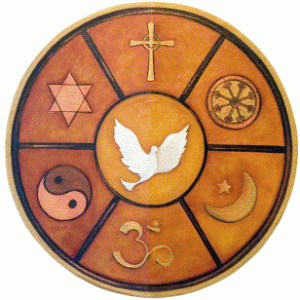DePaul University’s evolving Interfaith Council is only a glimpse into our nation’s growing expanding interfaith movement. It is an exciting time for those who are passionate about interfaith work. Much of the interfaith movement is progressing on campuses large and small all over the country because an academic university setting is a great place to cultivate the kind of sincere and open-minded conversations that are essential to this movement. Princeton University’s Religious Life Council (RLC) is a prime example of the modern interfaith movement in a university setting.
Princeton’s Religious Life Council was created in 2001 after an anonymous donation to the Office of Religious Life. Originally, the council was comprised of 15 students and RLC fellows who were chosen based on their enthusiasm for interfaith work, their various religious backgrounds, and a willingness to question and be questioned. Today the council has grown to 25 members. It includes members of the faiths of Islam, Judaism, Buddhism, Catholic and Protestant Christianity, Zoroastrianism, the Baha’i Faith, Sikhism, Hinduism, the Church of Latter Day Saints, and Unitarian Universalism. Many members of Princeton’sRLC comment on their initial shock that so many religions even exist. The goals of the RLC are “to deepen understanding and cultivate respect among all religious faiths, to weave connections between intellectual life and spiritual growth to widen the conversation on critical moral and ethical issues of the day and to provide visibility for the strength of diversity of religious life on the Princeton campus.”
The conversations that take place during the RLC’s meetings are challenging and strong disagreements often arise metween members of different faith traditions. However, members of the council walk away from these meetings with a respect and understanding dor various religions and those who practice them. The do not compromise their own faith, but simply learn about and respect the ideas of those around them. Ultimately, many encourage each other in their faith journeys.
The careful planning and commitment on the part of the members of the Religious Life Council at Princeton has created a thriving interfaith community in which peoples’ minds are opened to the faith traditions around them.
-Patrick Smith
Student Interfaith Council Member 2006-2007
Published in the Spring 2007 Issue of the Interfaith Review
